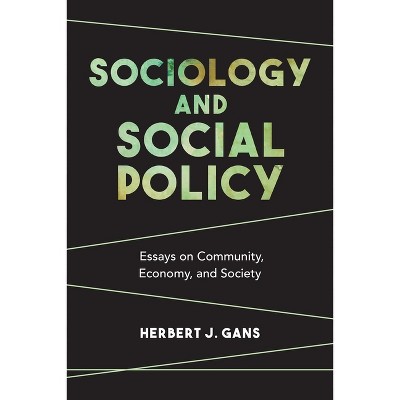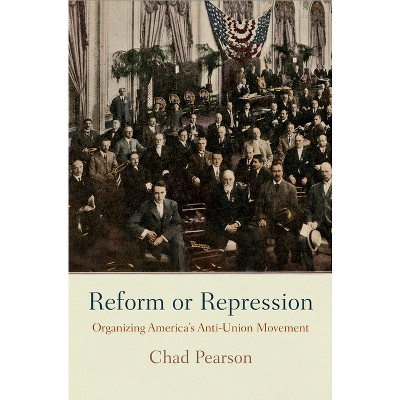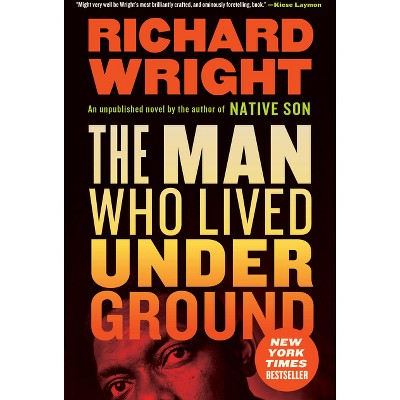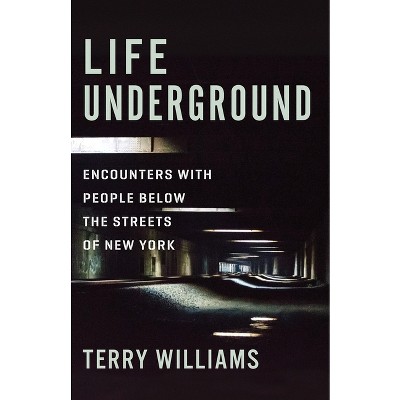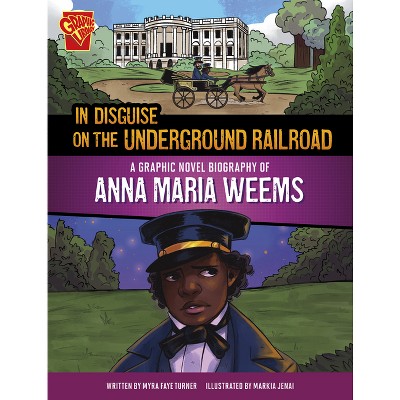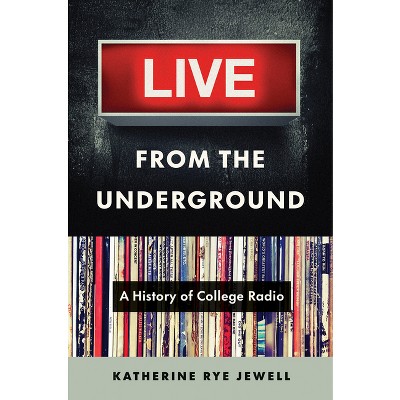Sponsored

London Underground - by David Ashford (Paperback)
In Stock
Sponsored
About this item
Highlights
- In London Underground: A Cultural Geography, David Ashford sets out to chart one of the strangest, as well as the most familiar, spaces in London.
- About the Author: David Ashford is Lecturer in English at the University of Surrey.
- 188 Pages
- Social Science, Sociology
Description
About the Book
Surveying an unusually wide variety of material, ranging from the Victorian triple-decker novel, to Modernist art and architecture, to Pop music and graffiti, this book suggests that the tube-network is a transitional form, linking the alienated spaces of Victorian England to the virtual spaces of our contemporary consumer-capitalism.Book Synopsis
In London Underground: A Cultural Geography, David Ashford sets out to chart one of the strangest, as well as the most familiar, spaces in London. This book provides a theoretical account of the evolution of an archetypal modern environment. The first to complete that slow process of estrangement from the natural topography initiated by the Industrial Revolution, the London Underground is shown to be what French anthropologist Marc Augé has termed non-lieu - a non-place, like motorway, supermarket or airport lounge, compelled to interpret its relationship to the invisible landscape it traverses through the medium of signs and maps. Surveying an unusually wide variety of material, ranging from the Victorian triple-decker novel, to Modernist art and architecture, to Pop music and graffiti, this cultural geography suggests that the tube-network is a transitional form, linking the alienated spaces of Victorian England to the virtual spaces of our contemporary consumer-capitalism. Recounting the history of the production of this new space, and of the struggles it has generated, London Underground is nothing less than the story of how people have attempted to make a home in the psychopathological spaces of the modern world.Review Quotes
A brilliant work of cultural history, full of original insights conveyed with clarity and gusto.
Michael Saler, University of California Davis
In the opening chapter "The Book of the Machine: A User's Guide", the author promotes his concept of the Underground as a new type of space, with its own geography, dynamics and psychology, effectively forming an alternative universe tied ineffectually to the metropolis above with which it interacts only at certain point and at certain times. This is not an easy read: it is an academic treatise with the notes at the end of each chapter indicating intensive research. Ironically the first chapter where the author sets out his basic proposals is the most difficult. What follows is an account of how the two spaces interact at various points in history: The Inner Circle in the Victorian imagination, the American invasion of the network, cartography and modernist design, the conceptual history of Metroland, Christmas in Hell (images of wartime sheltering in the Tube), the new counterculture - op and graffiti, and finally the psychogeography of the London Underground which seems to question the future's functionality and aesthetics without answers ("Uxbridge is entombed in a future remembered by all who were teenagers in the 1960s"). After the reader making the substantial initial effect involved, this is a fascinating and thought-provoking examination of how London and its Underground have interacted for 150 years. A specialist book, recommended for readers with imagination and interest in the wider picture.
Richard Thorogood, Underground News, Number 625
A rich study of the underground transport system, placing the network in its historical and cultural context.-- "TLS"
A strength of Ashford's study is his account of literary and artistic responses to the new experience of underground travel.-- "Times Higher Education"
Ashford gives us a very enjoyable account of the cultural history of the London Underground and this book should inspire management historians to think about the cultural side of organizations more, while bringing cultural history close to an interest in the cultural side of economic life.-- "The Journal of Urban History, Volume 41/4 2014"
David Ashford's London Underground is the first full-length study of the London Underground's cultural history, and questions of authority and possibility recur throughout. ... London Underground makes a convincing argument for deliberate and aesthetic interventions in the early Tube environment.-- "The Cambridge Quarterly"
About the Author
David Ashford is Lecturer in English at the University of Surrey.Shipping details
Return details
Frequently bought together

Trending Non-Fiction






